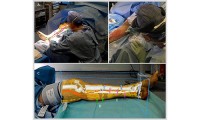-
Edible QR medication could help doctors prescribe more accurately, keep patients more informed
- Source: MobiHealthNews
- 745
- February 6, 2018
-
Prostate cancer now third biggest cancer killer in the UK
- Source: pharmatimes
- 755
- February 5, 2018
-
Body clock disruptions occur years before memory loss in Alzheimer’s
- Source: medicalxpress
- 895
- February 1, 2018
-
Russian researchers develop test strip to diagnose heart attack
- Source: medicaldevice-network
- 763
- January 31, 2018
-
the Mayo Clinic experience
- Source: acrabstracts.org
- 909
- January 30, 2018
-
New nanomedicine could prevent progression of pancreatic cancer
- Source: Israel21c
- 754
- January 30, 2018
-
Neuroscientists Have Followed a Thought as it Moves Through the Brain
- Source: Futurism
- 967
- January 26, 2018
your submission has already been received.
OK
Subscribe
Please enter a valid Email address!
Submit
The most relevant industry news & insight will be sent to you every two weeks.













